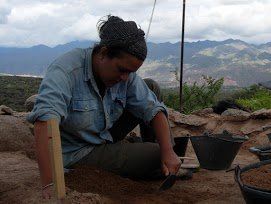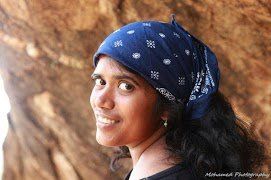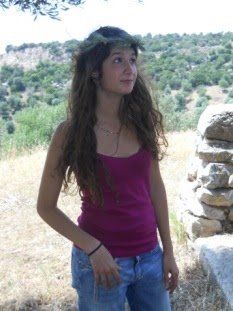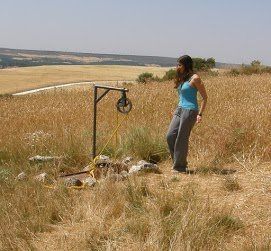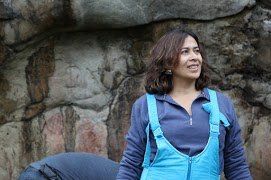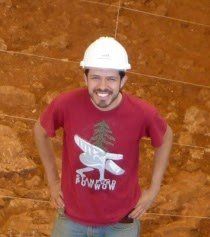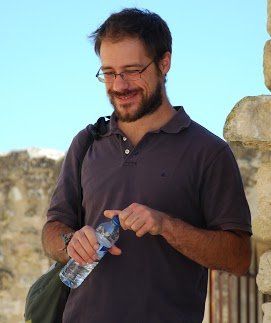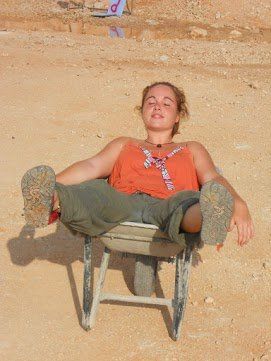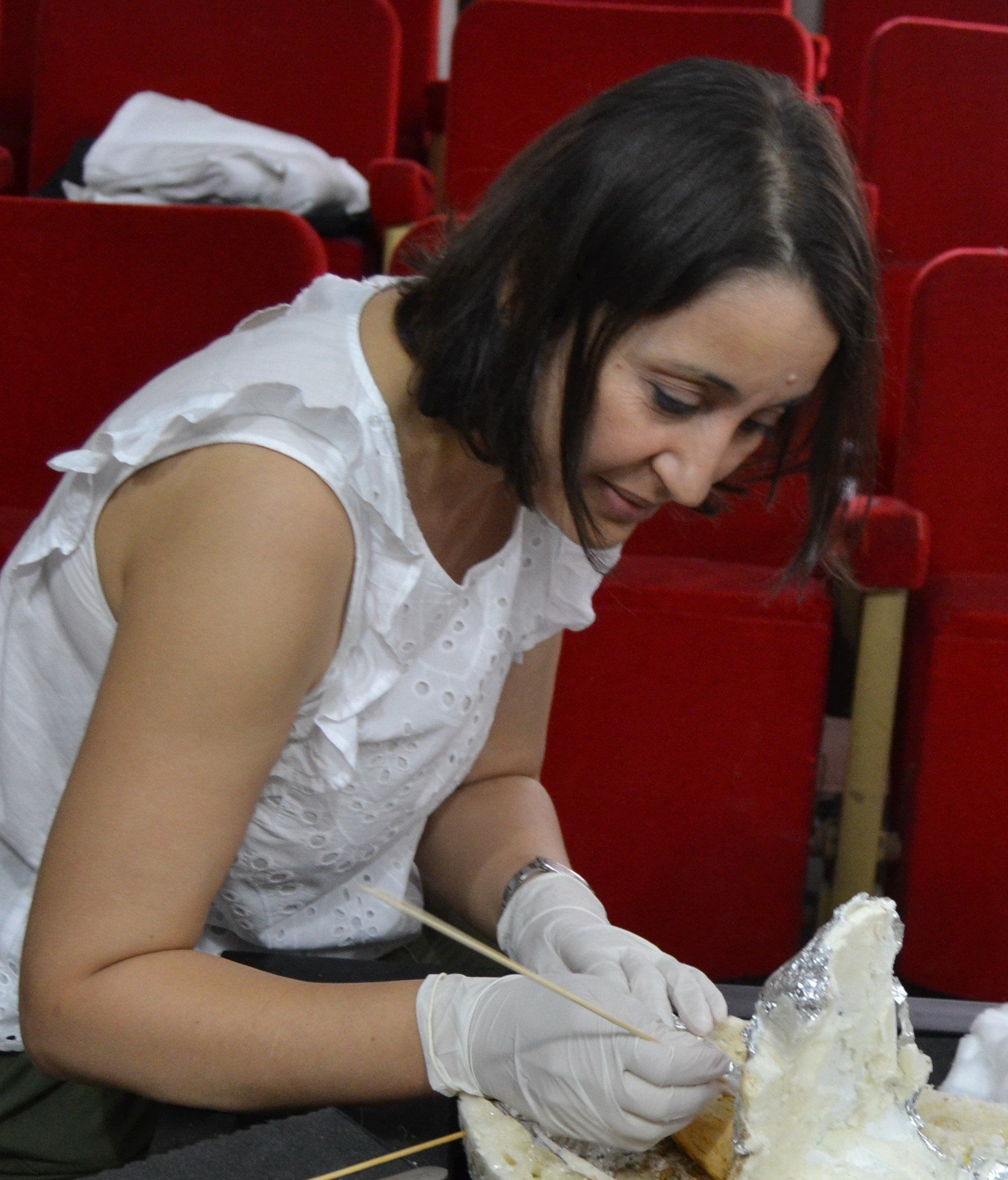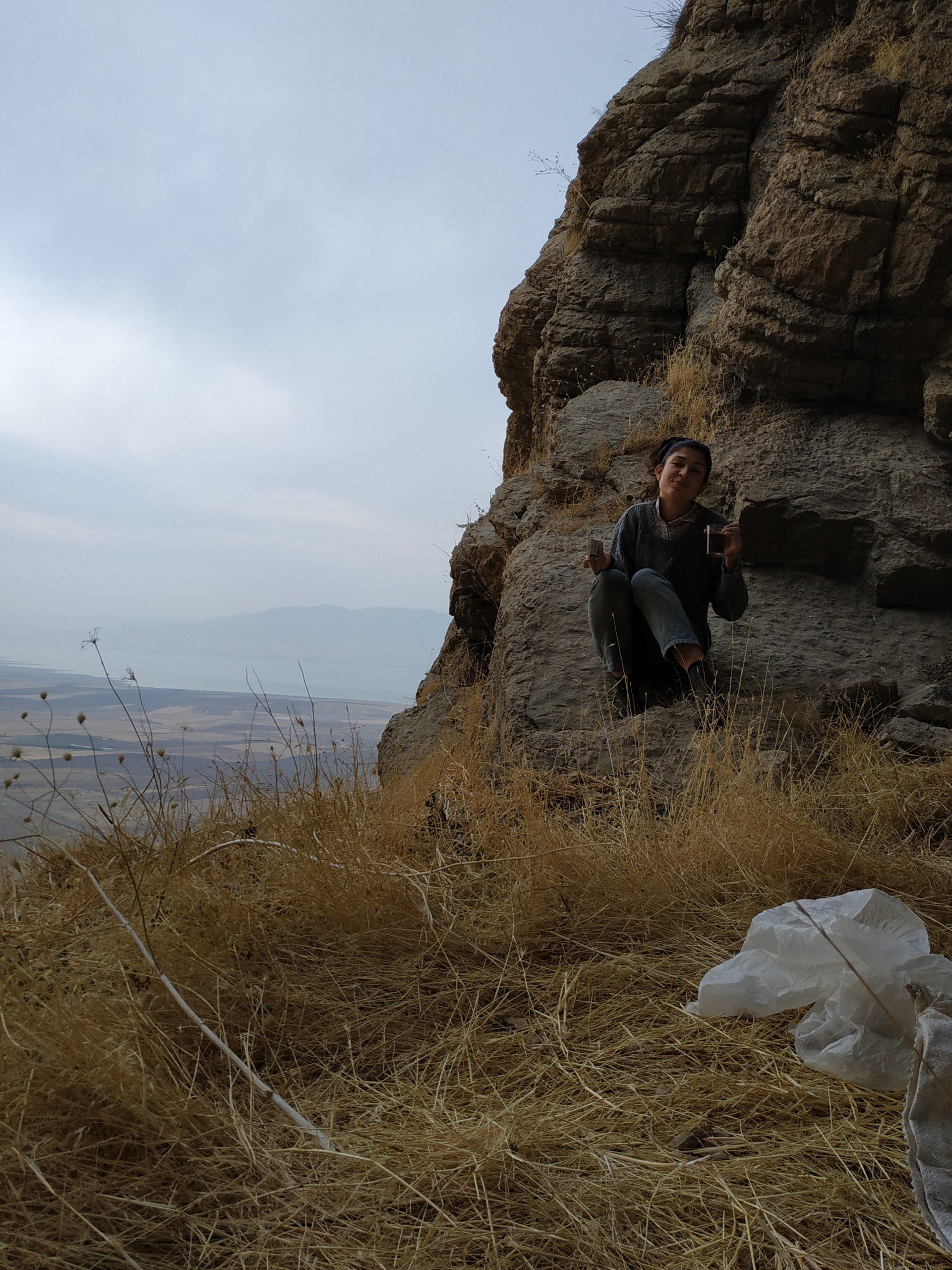THE IMQP MASTER
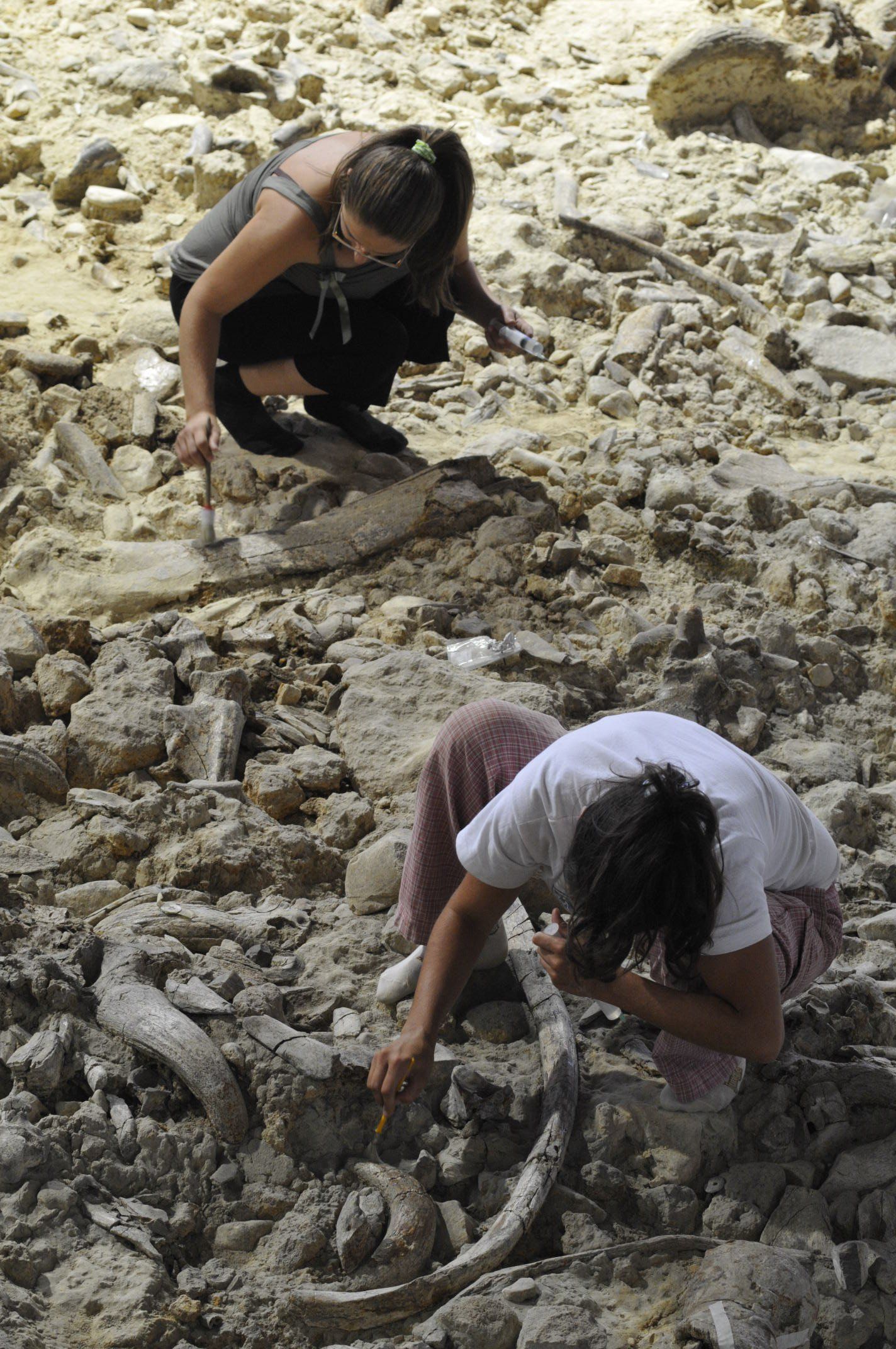
THE IMQP
The International Master in Quaternary and Prehistory (IMQP) lasts two years (120 ECTS). It is formed of a partnership of four HEIs with multi-annual experience in prehistoric research and formation: Università degli Studi di Ferrara (Italy, coordinator), Muséum National d’Histoire naturelle (France, partner), Universitat Rovira i Virgili (Spain, partner), Instituto Politecnico of Tomar (Portugal, partner). The main subjects of the IMQP educational program are the following: prehistory, anthropology, human palaeontology, chronology, evolution of fauna and flora, archaeometry and Quaternary geology. The main objective of the Master is to provide an essential knowledge on Prehistory and Quaternary geology by adopting an interdisciplinary approach and exploiting the scientific specialities of each partner Institution.
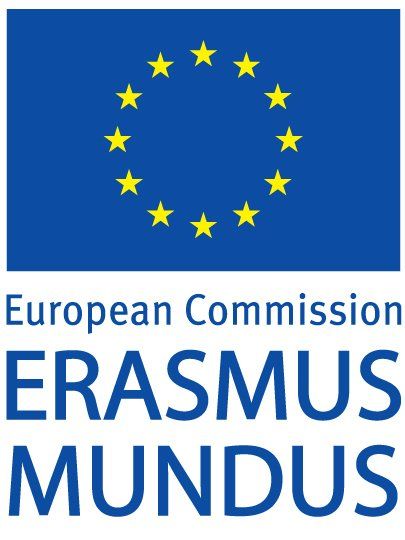
ABOUT THE ERASMUS MUNDUS PROGRAMME
Erasmus Mundus is a cooperation and mobility programme in the field of higher education that aims to enhance the quality of European higher education and to promote dialogue and understanding between people and cultures through cooperation with Third Countries. In addition, it contributes to the development of human resources and the international cooperation capacity of Higher education institutions in Third Countries by increasing mobility between the European Union and these countries
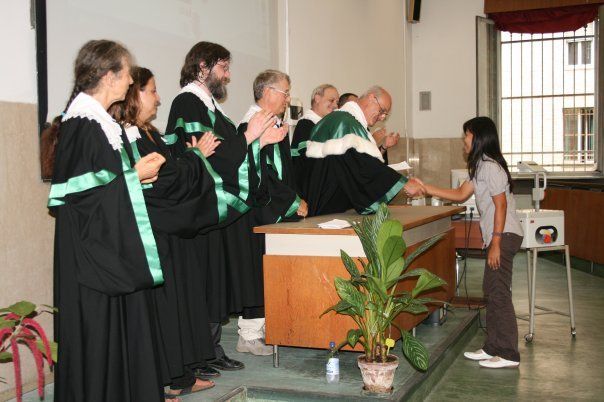
COURSE'S OBJECTIVES
The main objective of this course (120 ECTS) is to train young researchers in providing competitive services and researches on Prehistory, Paleo-anthropology , geology and paleontology, on the methods to be applied for prehistoric and archaeological research, on Quaternary’s Geology and Palaeontology and on heritage preservation and revaluation.
The master degree in Quaternary and Prehistory is meant to prepare professionals with the following requirements:
· Valid cultural background on scientific research, methods and knowledge on the ancient history of Man both from a cultural and from a naturalistic-prehistoric perspective;
· Appropriate skills in analyzing natural components (both biotic and biotic) within the relationship and interaction between man and environment during the long omination process with specific reference to Quaternary period;
· Knowledge on scientific aspects of Man’s evolution with special concern to naturalistic contents both from an historical and an evolutionary perspective, and also from the point of view of constant relationship with different ways of life and survival strategies used by our species along time;
· Coordination skills and ability to intervene in an interdisciplinary way both in terms of coordination and development of different kinds of research within the subjects of the master degree;
· Appropriate knowledge and management of filing and analysis of information concerning human evolution and natural environment of prehistoric community with special interest in biological and cultural aspects;
· Appropriate skills in restoration and preservation techniques of materials in prehistoric natural sediments.
· Interdisciplinary knowledge on the state of research within prehistory acquired at the main European Institutions.

STUDENTS AGREEMENT & USEFUL DOCUMENTS
Download the draft of the Students' agreement
How to calculate the scholarship amount?
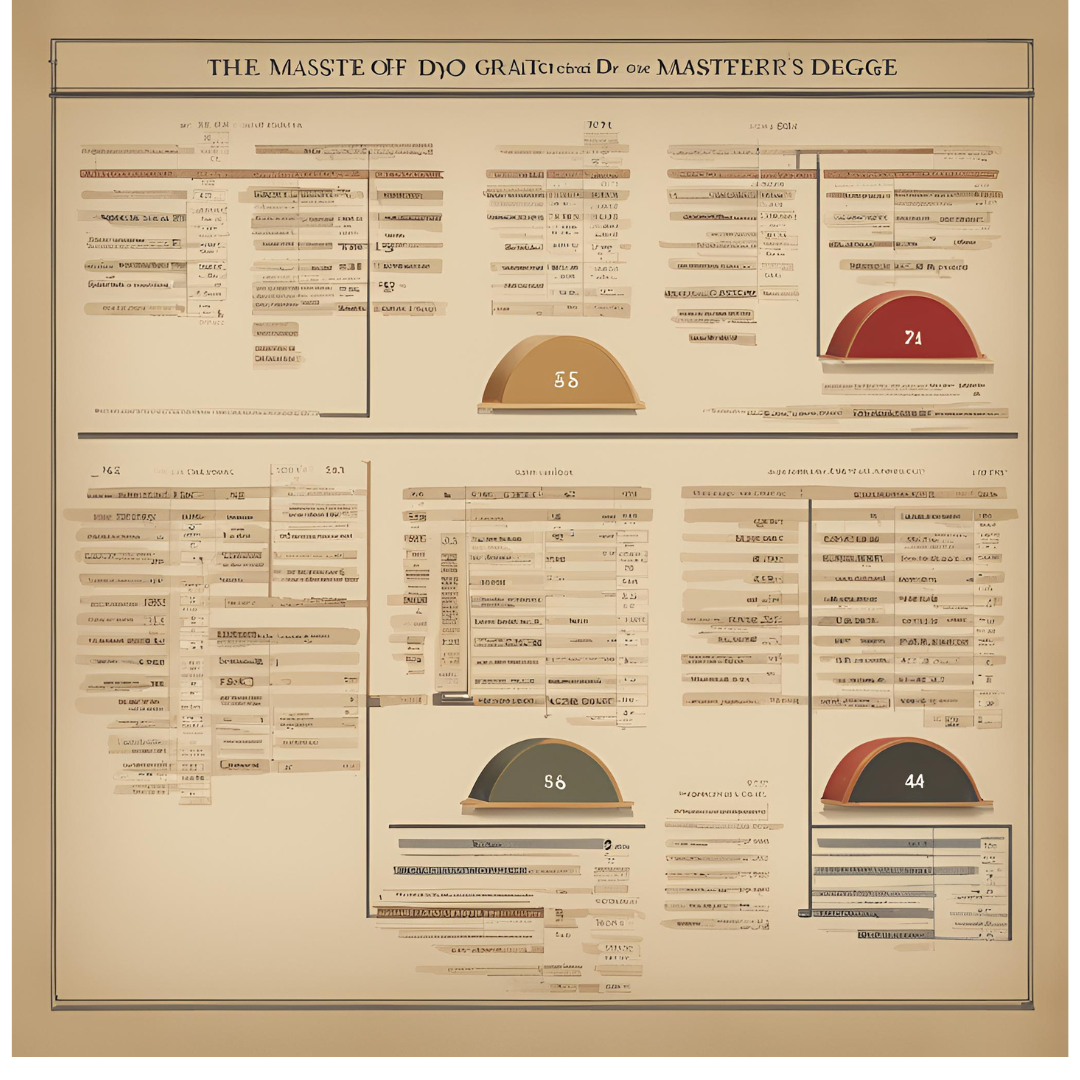
Evaluation scale
In the IMQP master's program, an ECTS grading system is preferably used, but some exams are assessed according to the national grading system of the partner institutions. Grade conversion is done based on the table provided here.
SUCCESSFUL STORIES
-
KHADY NIANG (Senegal)
ButtonThe Erasmus Mundus master in Quaternary and Prehistory is an incredible opportunity that changed my life ever. When in 2005, I applied to the program; the main reason was a better education that helps me improve my skills and knowledge as “new” archaeologist. This goal has been reached thanks to the international academic excellence provided by the University of Ferrara and other universities of the consortium. Erasmus mundus has undoubtedly helped me to carry on with my education by earning a Ph.D. and finally get the job I always wanted. I’m currently researcher at the University Cheikh Anta Diop of Dakar (Senegal) where I’m putting into practice the theorical background received during my training. Beyond academic aspects, the Erasmus mundus experience is an amazing life experience. A full immersion in several cultures from all over the world that allowed me to be more open mind and also learn more languages. Finally, I can proudly say that choosing the Master Erasmus Mundus in Quaternary and prehistory has been one of the best choices I have ever made.
-
MARINA FLORES (Argentina)
ButtonAfter finished my degree in Anthropology in National University of La Plata (Argentina), in 2004 I started the Erasmus Mundus Master in Quaternary and Prehistory in the University of Ferrara (Italy). I had the opportunity to do my Master Thesis about the comparison between two different methodological analyses of lithics artifacts from the archaeological site Riparo Tagliente (Italy). The task started in Ferrara University (Italy) and continued in the second year of the Master in Rovira I Virgilly University (Spain), where I did my Master movility. The Master as whole was an important opportunity to increase my knwoledge about prehistory of differents continents and archaeological work in general. In these context were very important the seminaries, workshops, study trips in Italy, Spain and France -with the visite to museums and archaeological sites-, the field work experience in differents archaelogical's sites from Italy -Riparo Tagliente (Verona), Isernia and Grotta Reale (Molise)-, the learning of differents techniques to study and conserve the ancient materials remain and the interchange of experience and knolwedge with differents sutdents and professors of several academic institutions. After finished the Masther I return to my country and did my PhD Thesis about the study of lithic technology of ancient sedentary groups from Northwestern of Argentina. The Masther gave me impontants tools and knowledge to development my studies and also to increase my curriculum vitae that allow me obtein different scholaship to finish the PhD Thesis and start to colaborate in Prehistory teaching at University, in my country.
-
RACHEL VARGHESE (India)
ButtonI joined the Erasmus Mundus Masters in Quaternary and Pre-history in 2009. My first year was in Portugal (IPT/UTAD) and I completed my mobility with the UNIFE, Italy during my second year. With my prior academic training being in history, the primary intention in joining the program was to have a richer understanding of field and theoretical archaeology. The program allowed ample opportunities for this. The practical methodology modules lithics and rock art at the IPT and the lithics module in UNIFE are worth mentioning in this regard. The guidance of Dr. George Nash, in for my masters dissertation titledInterpreting the Ritual Complex of Nasranikunn: A study of a Megalithic Complex in Central Kerala was an equally enriching and engaging experience. During the course of the two years I also participated in fieldwork at the sites of Pirro Nord (Italy) and Guernsay as well as in the Valcamonica rock art field school. At a personal level, the program gave me very important multi- cultural exposure and long-standing friendships. Currently, I am in the second year of my PhD with the Jawaharlal Nehru University, New Delhi on the thesis tentatively titled 'Trans- disciplinary engagements of Archaeological Knowledge'. The IMQPhas allowed me to develop a critical insight into the current discourses around archaeological heritage. It also a broad based understanding into the multiple facets of archaeological practice around the globe. This exposure has been critical in the choice and development of my present academic trajectory.
-
GIULIA MARCIANI (Italy)
ButtonIn 2011 I got a Bachelor’s Degree in Archeology at the University of Siena (Italy). Then, during the same year I obtained a scholarship from the Erasmus Mundus institution and I joined the Erasmus Mundus Master in 'Quaternary and Prehistory'. My decision to apply for the IMQP lays in the fact that this master offers the possibility to gain high educational studies, with a multidisciplinary approach. Personally I have accomplished my studies at the Universidade de Tras-os-Montes e Alto Douro (UTAD) and at the Instituto Politecnico de Tomar (IPT) in Portugal. Then I spent 3 months in a mobility in Philippines, during this time I was given the possibility to follow some courses at the University of the Philippines Diliman (UP) and joined in the excavation of Ille Cave in the in the amazing island of Palawan. After that, I decided to do my mobility of 3 months at the Museum National d'Histoire Naturelle (MNHN) in Paris. I also joined to the rock art field work in Valcamonica (Italy), that is a UNESCO protected heritage and to several other archeological excavations at the sites of Valle Giumentina, Cala dei Santi and Oscurusciuto in Italy. And it was exactly the technological studies of the lithic collection of this site (Oscurusciuto) the object of my master thesis. I submitted my thesis in September 2013 and currently I have a contract in the Sector de Grupo de Pesquisa Arqueologia e Gestao Integrada do Territorio of the Universitdade do Extremo Sul Catarinense (UNESC) of Criciuma (Brasil). Right now I am still in contact with some of the researchers, students and professors I met during the master and I will apply for a PhD to be able to continue my research also in Italy\Europe. The connection among different institutions of IMQP offers me the chance to improve my preparation by studying with a great number of professors from different countries and different backgrounds which assures a wide and intercultural knowledge. From a personal point of view, I am persuaded the IMQP master gave me a unique experience to know different cultures and lifestyles, to learn new languages and to meet young students and research-fellows from all over the world.
-
KARINA VANESA CHICHKOYAN (Argnetina)
ButtonI have obtained my Degree of Bachelor of Science Anthropology with Archaeological orientation in the Universidad de Buenos Aires (Argentina) in 2007. After that I did the Erasmus Mundus Master in Quaternary and Prehistory in the Universita’ degli Study di Ferrara (Italy) thanks to the Erasmus Mundus Scholarship. This was a key experience for my professional life. During the two years that took me the Master I have improved my research work trough the development of my thesis about South American megafaunal extinction. Also, this Master allowed me to accede to a high quality education in the Universita’ degli Study di Ferrara, with mobility in the Universitat Rovira i Virgili (Spain). These are first-class institutions were students participate and innovate in the production of high quality knowledge. There is full access to current scientific research (journals, books, internet resources, digitalized documents, among others) and a continual interdisciplinary formation that challenge students to learn and enhance as professionals. The advance support and training with renowned specialists in the different fields allows to integrate and to develop new scientific production. I have also the chance to participate in several excavations in Italy and Spain (Isernia La Pineta, Riparo Tagliente and Atapuerca between some) and to make and strength professional and friendship ties into an international and high interactive context. Since 2012 I’m Assistant Professor, in charge of the subjects of General Prehistory and Anthropology and American Prehistory and Anthropology in the Universidad Del Salvador, History School in Argentina. I have participated and collaborate in different projects for private environmental companies and in the IIDyPCa (Instituto de Investigaciones en Diversidad Cultural y Procesos de Cambio, Argentina) into the research team of PhD. Jose Luis Lanata. I have been recently awarded with the Erasmus Mundus Scholarship to continue with my PhD. in the Universitat Rovira i Virgili within the program of the International Doctorate in Quaternary and Prehistory. My principal line of investigation is the relationship between human and animal through zooarchaeology and taphonomical analyses. I have developed my research in De La Plata Basin (Argentina) during prehistorical and historical occupation. I have presented several papers in National and International Congresses and I have written different publications about these subjects.
-
JUDITH TRUJILLO (Colombian)
ButtonI joined the Erasmus Mundus Master in 2006, in the program of Quaternary and Prehistory. My first year was in Portugal in the consortium of UTAD and IPT. The next year, I made my mobility to MNHN in Paris. I feel very grateful and fortunate to have been in this Master Program. There, I find more useful to my first profession, Physics, in the field of archeology, especially in the study of Colombian Rock Art. Since a few years ago, I had been investigating on this subject, together with the research team GIPRI, Colombia. In an international congress of rock art, I had the great opportunity to meet Professor Dr. Mila Simoes de Abreu who encouraged me to introduce myself to this Master and I continued very grateful to her for giving me that information, because I managed to have the opportunity to learn about Archaeology. The excellent Professors of this master gave me an education that has given me great opportunities in my academic and professional career. I have won two fellowships to continue my studies on rock art, especially on the issue of Archaeometry of the rock art paintings with the support of the Foundation Calouste Gulbenkian in Portugal, and the Foundation for Archaeological Research in Colombia. Live in Portugal, gave me the opportunity to learn about this country, its culture and the idiosyncrasy of some peculiarities of the Portuguese. Likewise, share with people from many parts of the world helped me understand different perspectives of viewing the world. I made great friends, both among my colleagues, among the people of the cities where I lived (Maçao, Vila Real, Abrantes in Portugal, Paris in France), as teachers and researchers of IMQP. Also to visit the University of Rovira i Virgili (Spain) and attend the intensive course in Tautavel in 2006 and in Maçao in 2007 could approach the current research in prehistoric archeology. Finally, I wanted to highlight the possibility I had to work in some of the laboratories of MNHN, I learned technical analysis and dating of archaeological materials thereof. The key highlight was I could understand the difference between cultural-historical archeology and scientific archeology. This has implied a new stage in the investigations of GIPRI, Colombia.
-
HUGO REYES-CENTENO (USA)
ButtonFollowing an undergraduate degree in anthropological sciences, I joined the IMQP program in 2010. My desire to join IMQP stemmed from the unparalleled opportunities to link a quality educational curriculum with practical experience in the laboratory and the field. As a pioneering graduate program linking university institutions and one of the world’s largest natural history museums (MNHN, Paris, France), IMQP offers extensive resources for scientific research. Across the IMQP consortium, research programs span all stages of the Quaternary system and various geographic regions throughout the world, thereby allowing students to tailor their intellectual interests to specific lines of inquiry. In my experience, I completed most of my coursework at the University of Ferrara (Italy), undertook my primary thesis research on modern human cranial shape variation during a mobility at the MNHN, participated in field work at the sites of Atapuerca (Spain) and Pirro Nord (Italy), and defended my master thesis at the University of Rovira i Virgili (Spain). I also participated in an intensive program on heritage management co-organized by the IMQP consortium and third party entities, including UNESCO. From a personal perspective, IMQP afforded the opportunity to form lasting friendships, experience settings formerly foreign to me, and acquire new languages. Currently, I am a PhD student in paleoanthropology at the University of Tübingen (Germany) and in the Evolution and Ecology Research School Tübingen (EVEREST). Likewise, I have a research assistant employment contract with the Senckenberg Center for Human Evolution and Paleoenvironment. I continue to work with colleagues from the IMQP institutions and profit from lifetime opportunities via the Erasmus Mundus Students and Alumni Association (EMA). Erasmus Mundus has established a legacy of educational excellence in a globalized world. IMQP students and alumni are in a key position to continue this legacy while concurrently advancing personal growth and advocating for the collective interests of conserving and prudently managing the world’s cultural and biological heritage.
-
DOMENICO GIUSTI (Italian)
ButtonI got in 2006 a Master degree (Pre-Bologna process) in 'Conservation of Cultural Heritage' at the University of Perugia. After that, I spent some years occasionally working with ethnographic museums and collecting several 'alternative' jobs. But it wasn't enough. I had my first archaeological experience in 2009, followed the next year by my first fieldwork at Pirro Nord, with the University of Ferrara, and my life has changed. I decided in 2010 to join the Erasmus Mundus Master in 'Quaternary and Prehistory' at the University of Ferrara. From then on, I partecipate every year in the fieldwork of the Pirro Nord site and now, as part of the research team, I contribute in the management of the GIS of the site. Indeed the topic of my Master thesis was the application of spatial technologies to the Paleolithic site of Pirro Nord. During my Master I could also spend three productive and nice months in Portugal, thanks to the Mobility Program; and a very good week in France for the Erasmus Intensive Program. In these and other occasions I've come in contact and I made friends with students, researchers and professors from the institutions of the IMQP. With its international nature, its muldisciplinary approach, its high level of scientific support and advance, the IMQP allowed me to progress in my academic and professional career. During my Master I also had the opportunity to apply my GIS knowledge working for several archaeological private companies. So, my initial interest in the topic received the opportunity to grow up and to look to an international context, allowing me to strong develop my skills. Finally as PhD student, I will join the PaGe (Palaeoanthropology at the Gates of Europe: Human Evolution in the Southern Balkans) research team, directed by Prof. K. Harvati, from the university of Tuebingen (Germany).
-
JULIE ARNAUD (French)
ButtonIn 2007, i join the Master Erasmus Mundus program in Quaternary and Prehistory at the Muséum national d’Histoire naturelle of Paris. In my first year I won the Action 3 scholarship for a 3 month mobility in the Philippines. Successively I choose to do my Erasmus mobility at the University of Ferrara where they propose me to do my master thesis on human remains. From there start a strong collaboration with this institution and when I finish my master, I had a proposal for a PdD in Paleoanthropology and particularly on the study of unique fossil remains from Italy. I join a research group as a Paleoanthropologist on several excavation (Ciota Ciara,Piemont and Pirro Nord, Apuglia) where I start to have more and more responsibilities. During all this years I keep strong contact with student, PhD student, researcher and professor from the other University of the Consortium which turned out to be essential for my PhD research. Indeed, with the MNHN we were able to set up an official partnership with the acquisition of the join PhD title at the end (UNIFE/MNHN), also facilitate by the collaboration given by the IMQP program. I had then, access to one of the most important collection of human remains (MNHN), modern technologies and was formed by specialist of this field. Also after getting my PhD, collaborations are still on, I keep being solicited and keep solicit colleagues for lecture, intervention, excavation, advice and so on.
-
MANJIL HAZARIKA (India)
ButtonAfter completing an MA in Ancient Indian History, Culture and Archaeology from Deccan College Post-Graduate and Research Institute in Pune in 2005 with the Prof. H.D. Sankalia Gold Medal award for securing first class first position, I joined the 2005-07 batch of International Master in Quaternary and Prehistory (IMQP) at Universitat Rovira i Virgili in Tarragona. This Eramus Mundus Master program having teachers and students across countries and continents has provided a global perspective for my understanding of archaeology and prehistory and opportunities for sharing experiences. The course with theoretical foundation and methodological and practical exercises has been very crucial for my further study and career as an archaeologist. Apart from visiting some important archaeological sites in Spain and France, I could see some incredible prehistoric collections kept at the Institut de Paléontologie Humaine of Museum National d’Histoire Naturelle in Paris during my mobility. For my Master Dissertation, I have worked with Dr. Claire Gaillard on the collection of stone artifacts from Jinja in Uganda. The learning experiences at both the Institutes in Spain and France have enhanced my horizon of understanding of the subject and pursuing further studies and research. As part of the IMQP, I have attended several academic activities like Intensive program on “First Human Settlements in Eurasia” at the Centre Européen de recherches Préhistoriques at Tautavel; field visits to the some well-known Spanish cave sites with prehistoric paintings including Altamira and paleontological and early prehistoric sites of Orce; experimental archaeology programs; exploration and excavation training camps and museum visits which were some of the best learning opportunities. As a former student of IMQP, I was a member of the Indo-French research team which discovered anthropic activities at Siwaliks of Northwest India dating back to 2.6 Ma. In 2014, I completed my PhD from the Bern University in Switzerland on the prehistory of Northeast India and awarded the highest accolade of Summa cum laude. My PhD dissertation has been published in a book form by the Oxford University Press in 2017. In between, I have served at the Indian Archaeological Society in New Delhi as Research Associate and taught for two years at the Mekelle University in Ethiopia. Since 2015, I have been engaged in teaching and research at the newly established Department of Archaeology at Cotton University (erstwhile Cotton College from where I did my BA in Anthropology in 2003) in Guwahati in Assam. I sincerely thank the authorities of the IMQP and the collaborating universities for formulating and continuing such a state-of-the-art academic program and European Union for financially supporting the students from different corners of the globe. I still miss the friendly learning atmosphere at Tarragona!
-
RAZIKA CHELLI (Algeria)
ButtonAfter obtaining my bachelor's degree in archaeology in 2005 at the University of Algiers (Algeria), I followed my training by preparing the degree of "Magister in Prehistory" completed in 2009. In the same year, I joined Erasmus Mundus Master, Quaternary and Prehistory with scholarship. This program was an opportunity for me to acquire more new knowledge, tests and scientific experiences, by meeting other students, researchers and professors. My first year was in Spain in the Rovira i Virgili University, and in the next year I made may mobility at the Muséum National d’Histoire Naturelle of Paris. During my studies, I have attended several academic activities and I participated in excavation works in the early prehistoric sites of Barranco León and Fuente Nueva 3, La Boella and Atapuerca. As an archaeologist, I am interested in the behavior of the first hominins, so my Master Dissertation was about Homo – macro mammal interactions at Barranco León site; with Dr. Rosa Huguet. Later, thanks to IDQP program, I completed my PhD in 2018 from the University of Ferrara in Italy on Hominin subsistence strategies from Lower Palaeolithic sites (Pirro Nord 13, Italy and Tighennif, Algeria), with Pr. Marta Arzarello, Dr. Isabel Caceres and Pr. Mohamed Sahnouni. The first part of the PhD thesis was published in The Science of Nature in 2019 and the second part will appear soon in collaboration with the research team. Between 2013-2018, I served as a research associate at the Centre National de Recherches Préhistoriques, Anthropologiques et Historiques (CNRPAH, Algiers). Since 2018, I have held the position of permanent researcher in the same institution and my investigation lines are mainly the subsistence strategy and Homo Genius adaptation (Oldowan and Acheulean). Thus, I collaborate within the research team in the Lower and Early Middle Pleistocene sites of Ain Hanech, Ain Boucherit and Tighennif in Algeria with Pr. Mohamed Sahnouni. I am also engaged in teaching in zooarchaeology, taphonomy and palaeobotanique at the Institute of Archaeology of Algiers in Algeria. Thus, I wish to contribute to the improvement in terms of quality and investigation techniques in the field of prehistoric archaeology and human evolution. Finally, my sincere thanks go to the authorities of the IMQP and IDQP programs, the partner universities and institutes for the quality of the training and their financial support.
-
ISIS MESFIN (France)
ButtonI discovered the Erasmus Mundus Master Program when I participated to the fieldwork school of Tautavel in southern France in 2015. I began the program in 2017 and focused my master on lithic studies. During the first year Master I had the opportunity to spend several months in Philippines both for fieldworks and lithic analysis of the material from Makangit Pabintana Cave at the University of Philippines Diliman with Alfred Pawlick. During the second year master I specialized in African Prehistory and studied lithic assemblage from Central African Middle Stone Age, then , I spent several month in the University of Ferrara and attended to some courses and fieldwork too. It was a very good experience which enriched my knowledge of archaeological sciences, language skills and allowed me to meet a lot of interesting people. I’m very grateful to all the researchers involved in this program organization and especially to Chafika Falguère who always facilitated my different experiences abroad. After the master, I had the opportunity to go on a PhD at the MNHN. I’m currently studying and comparing Earlier Stone Age lithic assemblages from coastal plain of Angola, Namibia and South Africa under the supervision of David Pleurdeau and Hubert Forestier.
-
IVAN REY-RODRIGUEZ (Spain)
ButtonGraduated in History from Universidade de Santiago de Compostela (Galicia, Spain) in 2013. After that, I enrolled to the International Master in Quaternary and Prehistory (IMQP) at Universitat Rovira i Virgilli (Tarragona, Spain). In my first year I improve the scientific methods about the different archaeological disciplines. The second year, I had the opportunity to move to Università degli Studi di Ferrara (Ferrara, Italy), to study reference collections and also to work with specialist on my discipline. I obtained the Master’s degree in 2015. Thanks to the master, I also to participate in the archaeological field season of: Hohle Fels (Germany), Ciota Ciara (Piamonte, Italy), Pirro Nord (Apricena, Italy), Bolomor (Valencia), Orce (Granada), Atapuerca (Burgos) and specially Cova Eirós (Lugo), that is the archaeological site which my Master Thesis was focused on.
From a personal point of view IMQP give me the opportunity of developing a high qualified formation in the field of paleontology and having the chance to know international friends, institutions and professors that make me enlarge my experience and putting the base for future collaborations.
When I finished my master they propose my to study small mammals from the Near East. Since 2018 I am beneficiary of a predoctoral fellowship from the International Doctorate in Quaternary and Prehistory (IDQP). I am PhD student from the Muséum National d´Histoire Naturelle (MNHN) in Paris and Università degli Studi di Ferrara (Italy), with a strong collaboration with other institutions as the University college of London (England), the Natural History Museum of London (England), the Field Museum of Chicago (United States) and the American Museum of Natural History of New York (United States). Nowadays, I am collaborating in different projects in Iran (Kaldar Cave) and Armenia (Azokh Cave).
START IMMEDIATELY TO PLAN YOUR UNIVERSITY EDUCATION
CONTACTS
marta.arzarello@unife.it
info@quaternaryprehistory.eu

